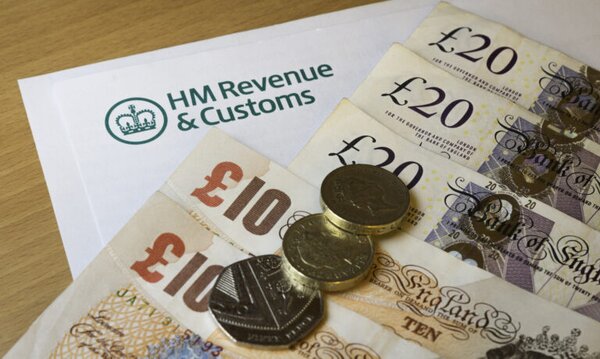Let’s Break This Down Together...
Missing your Self Assessment deadline? Wondering how much trouble you could be in, or if there’s still time to fix it?
This article’s here to help you understand HMRC’s penalty system, what counts as a “reasonable excuse,” and how to appeal if you get hit with a fine. You’ll also find out how to stay ahead of deadlines and avoid stress next time.
Knowing the rules could save you serious money and hassle, so you’re not left panicking over tax letters. Let’s find out!
What Are Self Assessment Penalties?
HMRC issues penalties when you miss deadlines for filing your tax return for the relevant tax year or making payments for the tax you owe. The penalty system is tiered, meaning the longer you delay, the more you’ll pay.
The initial late filing penalty is £100 for a late tax return that misses the filing deadline (31 January). After three months, daily penalties of £10 kick in, up to a maximum of £900.
At six months, you’ll face either 5% of the tax liability due or £300, whichever is higher. Late payment penalties are separate and additional, starting at 5% of unpaid income tax payments after 30 days.
Further 5% charges are applied at 6 and 12 months if the tax remains unpaid. I once helped a client who’d accrued over £1,200 in penalties from what began as a simple missed deadline.
How to Appeal a Self Assessment Penalty
You must submit your appeal within 30 days of the date you received your penalty notice. Missing this appeal window can make it much harder to get your penalty cancelled.
You can submit your penalty appeal by completing the appeal form (SA370) or by sending a signed letter to the appropriate HMRC office. There are specific forms for different situations; for example, if you are in a partnership, the nominated partner must submit the appeal using form SA371. You can appeal online through your Government Gateway account or by post. For simpler cases, phone appeals are also accepted.
When submitting your appeal, always include evidence to support your case. Be sure to provide details and evidence of your reasonable excuse, such as hospital letters, death certificates, or screenshots of HMRC website errors.

Deadlines and Timely Response
When it comes to appealing a self assessment penalty, timing is everything. HMRC gives you just 30 days from the date you receive your penalty notice to submit your appeal, whether it’s for late filing, late payment, or another type of penalty. Missing this crucial deadline can result in your appeal being automatically rejected, even if you have a strong reasonable excuse.
To protect your rights and give your appeal the best chance of success, act quickly. Set reminders as soon as you receive a penalty notice, and gather any evidence you’ll need to support your case. Submitting your appeal within the allowed timeframe shows HMRC you’re serious about resolving your tax affairs and meeting your tax obligations.
If you do miss the deadline, all is not lost, but you’ll need to provide a compelling reasonable excuse, such as a serious illness or an unforeseen event that genuinely prevented you from filing or paying on time. HMRC will consider late appeals in exceptional circumstances, but the bar is set high, so don’t delay if you can avoid it. Staying on top of deadlines is the simplest way to avoid further complications and keep your appeal on track.
What Counts as a Reasonable Excuse?
HMRC doesn’t have a definitive list of acceptable excuses, but they generally consider serious or unexpected events. These are circumstances that genuinely prevented you from meeting your tax obligations, such as being unable to fulfill your tax obligation due to unforeseen events.
For example, not receiving your assessment tax return from HMRC, or being unable to access online services, can be considered reasonable excuses. Other examples include difficulty reaching HMRC helplines or postal delays outside your control.
Valid grounds typically include serious illness or hospital stays. The death of a close relative near the deadline is also widely accepted, especially if it resulted in failing to meet your tax obligation.
IT failures affecting HMRC’s online services or natural disasters like flooding are recognised excuses. Postal delays can be accepted if you can prove you sent your return with plenty of time.
Mental health issues are increasingly recognised by HMRC, especially with supporting medical evidence. Be honest and specific about how your condition affected your ability to file.

What Won't HMRC Accept as an Excuse?
Not all reasons will wash with the taxman. Simply forgetting the deadline or claiming you were too busy won’t cut it with HMRC.
Claiming you didn’t have enough money to pay your taxes is rarely accepted. HMRC expects you to budget for your tax liabilities throughout the year.
Blaming your accountant or tax adviser generally fails too. HMRC considers it your responsibility to ensure your self assessment tax return is filed, even if you’ve delegated the task.
Issues related to customs or indirect tax penalties are subject to different rules and are not usually accepted as reasonable excuses for missing self assessment tax deadlines.
Software problems are tricky ground for appeals. HMRC may ask why you didn’t try alternative filing methods when you realised there was an issue.
What Happens After You Appeal?
Once you’ve submitted your appeal, Revenue (HM Revenue and Customs) typically responds within 45 days. They might ask for more information before making their tax decision.
You’ll receive a letter explaining the outcome of your appeal and HMRC's decision. The outcome could be that HMRC agrees with your appeal and decides to cancel the penalty, or they may reduce it. If HMRC believes your reasons (such as issues with paper tax returns) are not sufficient, they may reject your appeal.
If you have already paid the penalty and your appeal is successful, you may receive a refund with interest.
If they reject your appeal, don’t lose hope. You can ask for a review by a different HMRC officer, which gives your case a second chance.
Still unhappy after the review? You can take your case to the independent Tax Tribunal. This must be done within 30 days of HMRC’s final decision.

What to Do if Your Appeal is Rejected
If you have outstanding tax years and If your appeal is rejected by HMRC, don’t panic, there are still steps you can take. You’ll receive a letter from HMRC explaining why your appeal was unsuccessful and outlining your next options. If you believe your reasonable excuse was not properly considered, you can request a review of the decision by a different officer within HMRC’s Solicitor’s Office and Legal Services directorate.
If the outcome remains unchanged and you still disagree with HMRC’s decision, you have the right to escalate your appeal to the tax tribunal. The tax tribunal is an independent body that will review your case afresh.
You can choose to represent yourself or seek help from an accountant or tax advisor who understands the appeal process and tax law. Make sure your explanation of your reasonable excuse is clear, detailed, and supported by evidence.
Following the correct procedures and deadlines at each stage gives you the best chance of a positive outcome.
First Tier Tribunal: Escalating Your Appeal
If you’re still not satisfied after HMRC’s internal review, your next step is to take your case to the First Tier Tribunal. This independent tribunal will look at all the evidence and arguments from both you and HMRC before making a decision about your penalty.
To prepare for the tribunal, organise your documents, correspondence, and any evidence that supports your appeal. The process may involve a hearing, where you can present your case in person or in writing.
You have 30 days from HMRC’s final decision to submit your appeal to the First Tier Tribunal, so act promptly to keep your case moving forward.
The tribunal’s decision is binding on both you and HMRC, but if you disagree with the outcome, you may be able to challenge it in higher courts. If the tribunal agrees with your appeal, HMRC will amend or cancel the penalty.
If your appeal is rejected, consider seeking advice from a tax professional to explore any further options. The tribunal process can take time, especially for complex tax matters, but it offers an impartial review and a final say on your self assessment penalty dispute.

Final Thoughts
Acting quickly is crucial when appealing self assessment penalties. Always note the date of any penalty notice or correspondence, as deadlines for appeals are strictly enforced. The stronger your evidence and the more specific your explanation, the better your chances of success.
Keep records of everything related to your tax affairs. This includes copies of all forms you submit, as well as any circumstances that might affect your ability to meet deadlines.
Remember that prevention is always better than cure. Setting reminders, keeping track of payments made to HMRC, and filing early can help you avoid the stress of penalties altogether.
Pie.tax: Simplifying Self Assessment Penalty Appeals
Dealing with tax penalties adds unnecessary stress to your life, but it doesn’t have to be that way. Pie, the UK’s first personal tax app, sends automatic deadline reminders to keep you on track.
Our alerts notify you well before important tax dates approach, helping you avoid penalties before they occur. The app stores all your tax information securely in one place for easy reference.
Our direct HMRC filing feature supports online returns and allows you to submit your tax return directly. The app helps ensure your return is complete before you submit it.
If you do receive a penalty, our in-app guidance can help you understand your options. We provide structured advice to help you build a stronger appeal case, and the app can assist you to submit your appeal and manage the necessary forms.
Explore the Pie app if you’d like to see how we can make your tax life simpler.











